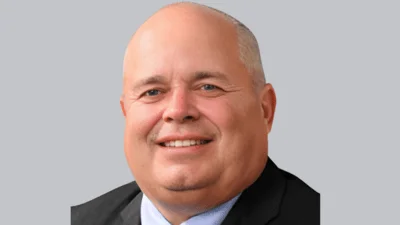Daniel Swanson, Illinois State Representative for 71st District | Official Website
Daniel Swanson, Illinois State Representative for 71st District | Official Website
During the final week of the fall veto session, Illinois lawmakers addressed major issues related to public transit funding and energy policy. Representative Dan Swanson provided a summary of legislative actions and their implications for his constituents.
A key topic was the financial challenges facing mass transit systems in the Chicago area. The projected shortfall, initially estimated at $770 million, has been reduced to $220 million. However, Senate Bill 2111 Amendment #3 allocates over $1 billion in new funds to support these systems. According to Swanson, "This year representatives of these transit systems came to Springfield asking for a bailout, and the House responded by sweeping hundreds of millions of dollars collected from the state’s gas sales tax and interest on the 'lock box' road fund (motor fuel tax) to generate funds for this bailout." Nearly $1.1 billion was identified through an $860 million sales tax sweep and another $175 million from interest on the road fund motor fuel tax.
Previously, these funds were divided with 55% going to downstate communities and 45% to northeast Illinois. The new legislation changes this split to 85% for northeast Illinois and 15% for downstate areas. The Northern Illinois Transit Authority (NITA) will now receive these funds without an expiration date. Swanson noted that this redistribution results in a "$569 million loss to downstate roads, maintenance and transit," with an additional "$175 million... moved to the NITA from the interest on the road fund."
The bill also includes toll increases—$.45 per vehicle at toll booths and a 30% increase for commercial vehicles—which are expected to generate over $1 billion. It further introduces reforms in organizational structure and leadership within the transit system. Swanson stated, "I voted No on the over $2 billion tax increase, but it passed the House and the Senate in the early morning hours on Halloween. It now goes to the Governor for his signature."
Lawmakers also approved an energy bill described by Swanson as similar to federal “Green New Deal” proposals. He said it adds mandates for families and businesses while giving more authority over energy policy decisions to unelected officials: "When asked, the sponsor of the bill could not show us where any immediate cost savings for Illinois ratepayers would be. Admittedly, it may be at least 5 years before reductions are realized." The bill emphasizes battery storage funded by ratepayers and allows state authorities—not local governments—to decide site locations for storage facilities. Municipalities generating their own electricity must install batteries so that by 2030, 40% of their energy comes from renewable sources.
Swanson expressed concern about increased costs: "All of this will have a tremendous cost, which will fall on the backs of consumers." He voted against this legislation.
On property taxes, Swanson supported legislation raising income thresholds so more seniors can qualify for property tax freezes—a move intended to address what he describes as some of America’s highest property taxes: "High property taxes add to the burden on Illinois families and small businesses... Reform is long overdue." The freeze Homestead Exemption will rise incrementally from $75,000 in taxable year 2026 up to $79,000 by taxable year 2028.
Swanson also attended last week’s dedication ceremony at Quincy’s newly completed Illinois Veterans Home—a project totaling $300 million that provides both long-term care (210 beds) and independent living units (80). Amenities include dining rooms with meal service, living rooms with fireplaces, outdoor spaces featuring interactive art installations, a chapel, movie theater, and pub.
Reflecting on its history since being established after an 1885 Grand Army of the Republic encampment prompted statewide support among Civil War veterans’ groups—Quincy residents contributed most of the land purchase price—the home has played a significant role in supporting disabled veterans since its formal dedication in October 1886.
Additionally, Evelyn Wilbur—a tenth grader at Orion High School—served as House page during veto session proceedings. Swanson highlighted her academic achievements as well as her community involvement.
Swanson was elected as a Republican representative in 2023 for Illinois’ 71st House District following Donald L. Moffitt's tenure.
Other topics mentioned included updates on legal proceedings involving migrants in Illinois; retirement plans of a Knox County farmer; University of Illinois pumpkin recycling initiatives; and reminders about smoke alarm checks when clocks change.






 Alerts Sign-up
Alerts Sign-up